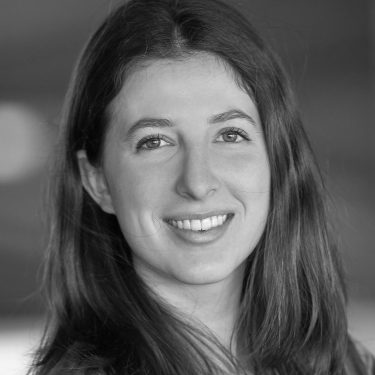“The More Things Change, the More They Stay the Same?”
At Völkerrechtsblog, we have quite frequently wondered about time, speed, timing, and temporalities. For example, when drafting an editorial for a ten-year anniversary, there is considerable temptation initially to divide the text into neat sections between “the past”, “the present”, and “the future”. However, at second glance, we – meaning the blog’s current Co-Editors-in-Chief Sué González Hauck, Meike Krakau, and Isabel Lischewski – find that such a division is actually almost impossible.
After all, the development of an institution such as a blog does happen in fits and starts and sometimes painful growth spurts, but at the same time often so slowly and gradually that it is all but unnoticeable at first. Oftentimes, we have furthermore made the experience that we thought we were debating the introduction of radically new policies at the blog only to realize that we were in fact rehashing year-old discussions. Time is, indeed, a flat circle, and progress is not linear – but possible and indeed imperative.
Case in point, many of our still-current team members, including Sué and Isabel, joined Völkerrechtsblog in mid-2019, when the blog staff almost doubled in size, marking an important growth spurt and a decisive move towards more professionalization. Four and a half years later, in late 2023, we grew our team once more by twelve new editors, mirroring the “big extension” of 2019 – but this time with a focus on diversity and internationalization much honed since then.
Despite our increased internationalization, at Völkerrechtsblog, we never tried to hide the fact that we are and remain situated in a very specific, i.e. the German-speaking, legal tradition. Even though we now predominantly publish posts in English and have a wide international readership, we never considered changing our ‘unpronounceable’ name and even made the “Ö” Umlaut our logo. This is our way of acknowledging that knowledge production is always situated. In the very first blog post published on Völkerrechtsblog, Dana Schmalz and Michael Riegner stated that one of the goals of this new platform would be to express the autonomy and uniqueness of international law scholarship in the German-speaking world while also fostering dialogue – with other legal and adjacent disciplines and with international debates surrounding international law. We remain committed to this goal.
Running and funding an academic blog continues to come with its privileges as well as precarities. Like so many other institutions who are part of the Open Knowledge and Open Access movement, we still mainly rely on volunteer work. A certain degree of professionalization has been made possible mainly since we were able to secure a grant by the Deutsche Forschungsgemeinschaft (German Research Foundation). We are still searching for a more sustainable model to finance our work. After all, being able to have at least some paid positions is not only a matter of professionalization but also of removing barriers within legal academia. If you want to support our work and help us keep our technological infrastructure running we always welcome dÖnations of any kind, true to the motto: those who can for those who can’t.
As we prepared for our grand anniversary, we could not help but reflect on all the developments and changes the blog has gone through. And just as the blog has changed and evolved considerably in recent years, so too has international law itself. To mark the occasion, we invited the authors of some of our most outstanding and widely read articles to reflect on them once again. Some of these articles concern past developments which, unfortunately, have lost nothing of their currentness – such as the fact that our ten-year anniversary almost coincides with that of Russia‘s 2014 invasion of Crimea. Others play with the format and idea of a blogpost or contain self-reflection by the authors on how their own approach to writing may have changed over the years.
Beyond the blog, as behooves a Germany-based legal institution, we‘re also celebrating our anniversary with the publication of an edited volume. In subverting the idea of the classic German „Festschrift“ as a commermorative publication for a person and as a symbol for the established ways of „doing“ German legal academia, we want to create a „Festschrift“ for an idea: the idea of turning established hierarchies on their heads; of moving away from prototype imagination of an isolated scholarly genius; of opening access to legal science in more than one way; of setting new parameters for scientific debates and of fusing open-mindedness and academic rigor. A big thank you to everyone who continues to make this project a reality. Look out for our „Festschrift“ – coming in September 2024!
A decade of international legal blogging would not have been possible without the help of so many wonderful people, both at the centre of the day-to-day action and in the background providing us with invaluable help and advice throughout the highs and lows of making and finding our own way in legal academia. As it would border on the impossible to mention everyone by name, we would like to begin by thanking all of our peer reviewers and academic advisors who ensure that the high academic standards we set for ourselves at Völkerrechtsblog continue to be upheld. We’d also like to give a shout-out to our publishers, who actively support us in our efforts to professionalize and further develop the blog. A huge thank you to our incredible authors from all over the globe, who keep surprising and delighting us with their work and deep legal insights every day. Our editorial team, consisting largely of volunteers, remains the backbone and engine of this blog, the source of sheer endless creativity and motivation, for which we are beyond grateful.
And finally, we want to thank you – our readers – for being a vital part of our journey and making this project possible. On to the next ten!

Dr. Sué González Hauck is a postdoctoral researcher at DeZIM Institute Berlin and Co-Editor-in-Chief at Völkerrechtsblog.

Meike Krakau is a doctoral candidate and a research assistant at the Chair of Public International Law and Public Law at the Ludwig-Maximilians University (Munich). Her research interests include international environmental law with a special focus on climate change litigation, human rights law and international adjudication. She is a Co-Editor-in-Chief at Völkerrechtsblog.


Dr. Isabel Lischewski is a Post-Doctoral Research Assistant with Prof. Dr. Nora Markard at WWU Münster. Her research interests lie in global governance, critical theory, and access to justice. She is an editor-in-chief at Völkerrechtsblog.